VET 2025_ Event Postponement
This is to inform that due to some circumstances beyond the organizer control, "2nd Edition of International Conference on Veterinary Science" (VET 2025) June 09-11, 2025 | Hybrid Event has been postponed. The updated dates and venue will be displayed shortly.
Your registration can be transferred to the next edition, if you have already confirmed your participation at the event.
For further details, please contact us at veterinary@magnusconference.com or call + +1 (702) 988 2320.
Veterinary Diagnostics
Both human and veterinary medicine rely heavily on diagnosis, which can be defined as the process or action of determining the nature and cause of a disease or damage. Despite the fact that diagnostic techniques and procedures have long piqued the interest of instructors and researchers, social science and sociological inquiries into the practise of diagnosis have been few and far between. This is especially true when it comes to veterinary diagnostic processes and practises. Surveillance, monitoring, or screening for disease, prevalence estimation, and risk-factor research are all examples of non-clinical applications of diagnostic tests in veterinary medicine. Diagnosis, as a practise, as a type of specialised knowledge, and as a scientific and social process, is at the heart of medical and veterinary activity and professional validity. Nonetheless, diagnostic practise is evolving.
- Anatomic Pathology
- Bacteriology/Mycology
- Clinical Pathology
- Epidemiology
- Immunology
- Laboratory Information Management
- Molecular Biology
- Parasitology
- Public Health
- Toxicology, And Virology

Marco Polettini
DVM, Italy
Andreia Freitas
INIAV/REQUIMTE, Portugal
Andreia Freitas
INIAV/REQUIMTE, Portugal
Kedibone Gloria Kgosana
Sefako Makgatho Health Sciences University, South Africa
Nnenna Ugwu
Anglia Ruskin University, United Kingdom
Rubens Dias de Melo Junior
Universidade Federal de Goiás, BrazilSubmit your abstract Today
Important Alert:
X


Title : Analyzing veterinary medicine residues in food: A comprehensive guide
Andreia Freitas, INIAV/REQUIMTE, Portugal
Title : Quantifying changes in facial expression following hot-iron disbudding under procaine hydrochloride and meloxicam treatment in Holstein dairy calves
Nnenna Ugwu, Anglia Ruskin University, United Kingdom
Title : Trypanosoma vivax in and outside cattle blood: Parasitological, molecular, and serological detection, reservoir tissues, histopathological lesions, and vertical transmission evaluation
Rubens Dias de Melo Junior, Universidade Federal de Goiás, Brazil
Title : Characterization of porcine rotaviruses in the Czech Republic
Romana Moutelikova, Veterinary Research Institute, Czech Republic
Title : Determination of Circulating Foot-and-Mouth Disease Virus Serotypes in Kenya (2023)
Hellen Mutua, Foot and Mouth Disease National Reference Laboratories, Kenya
Title : Welfare for Amazonian wild animals
Eliane Cardoso Carvalho Moraes, Jungle Warfare Training Center/ Army, Brazil